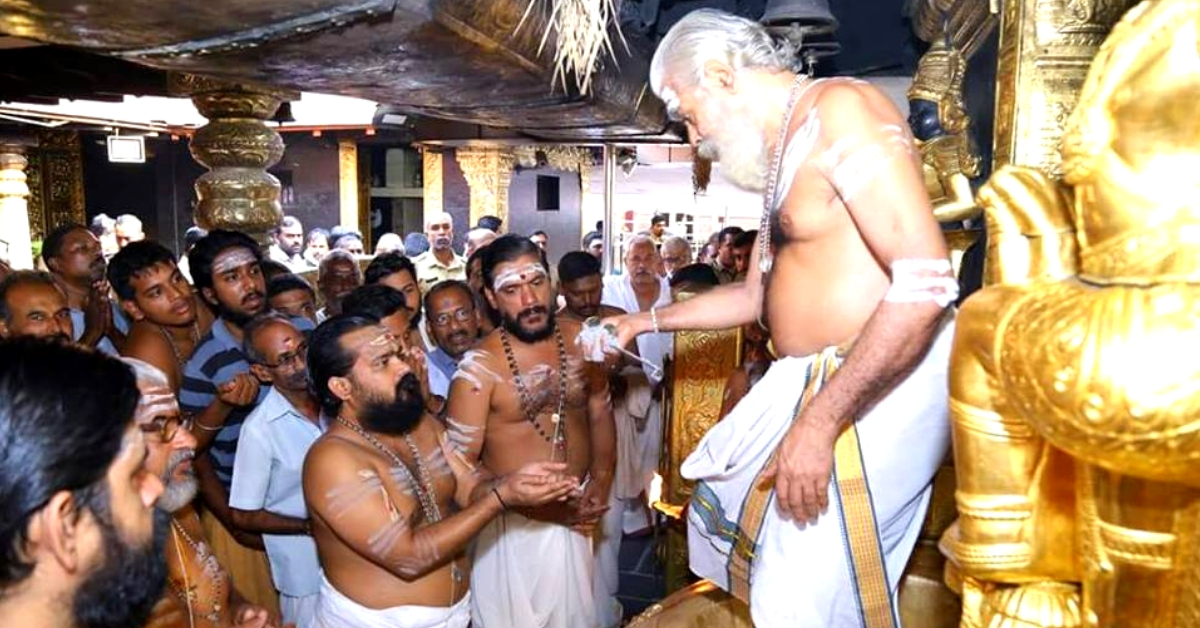‘Devotion Can’t Be Subjected to Discrimination’: 5 Facts About SC’s Sabarimala Verdict
“Religion cannot be cover to deny women right to worship. To treat women as children of lesser God is to blink at Constitutional morality.”

A five-judge Constitution Bench of the Supreme Court has allowed the entry of women of all age groups into the Sabarimala Temple, holding that “devotion cannot be subjected to gender discrimination.”
Interestingly, Justice Indu Malhotra, the lone woman on the bench, has written a note of dissent against the majority judgement. Chief Justice Dipak Misra, Justice RF Nariman, Justice AM Khanwilkar and Justice DY Chandrachud constituted the majority.
Here are five things you should know about the judgement:
1. “[A] woman is not lesser or inferior to [a] man. Patriarchy of religion cannot be permitted to trump over faith. Biological or physiological reasons cannot be accepted in freedom for faith. Religion is basically a way of life. However, certain practices create incongruities,” said Chief Justice Dipak Misra.
2. Lord Ayyappa devotees do not constitute a separate religious denomination, said the CJI according to Live Law. The Travancore Devaswom Board, which manages the temple’s affairs, had argued in court that they should be allowed to make the rules as they form a denomination.
3. Rule 3(b) of the Kerala Hindu Places of Public Worship (authorisation of Entry) Rules 1965, which prohibits entry of women in Sabarimala, was also struck down as unconstitutional.
“Rule 3(b) of 1965 Rules is a clear violation of the right of Hindu women to practice religion under Article 25,” Misra ruled. “The right guaranteed under Article 25 has nothing to do with gender or physiological factors.”
Article 25 guarantees the freedom to follow any religion and propagate it. Nonetheless, like all fundamental rights, this freedom comes with restrictions such as a responsibility to ensure public order, morality and health are not compromised in the process.
4. Among the most significant issues up for discussion was the ‘essentiality’ principle, which comes from a 1954 five-judge Bench decision on the Shirur Mutt case, which judged a religious practice based on whether it is essential in terms of the tenets of religion rather than whether it is conducive to the Constitution, reported Live Law. The five-judge bench today criticised that approach calling it a “problem with our jurisprudence”.
Irrespective of the ‘essentiality’ of the practice to the religion, discrimination cannot be condoned if it violates the basic structure of the Constitution.
“The bar on entry of women between the age of 10 and 50 years is not an essential part of the religion,” Bar & Bench quoted the CJI as saying.
5. Justice Indu Malhotra, however, took a divergent view. “Issues of deep religious sentiments should not be ordinarily be interfered by the court. The Sabarimala shrine and the deity is protected by Article 25 of the Constitution of India and the religious practices cannot be solely tested on the basis of Article 14,” she said, as reported by The Indian Express.
“Notions of rationality cannot be invoked in matters of religion,” said Justice Malhotra, adding: “What constitutes essential religious practice is for the religious community to decide, not for the court. India is a diverse country. Constitutional morality would allow all to practise their beliefs. The court should not interfere unless if there is any aggrieved person from that section or religion.”

To the uninitiated, this case pertains to petitions against the ban on the entry of menstruating women (between the ages of 10 and 50) inside the temple. Here are the parties which stood for and against the petition:
For temple entry:
a) Indian Young Lawyers Association, a non-profit, is the principal petitioner seeking the entry of all women and girls into the temple dedicated to Lord Ayyappa.
b) Right to Bleed, an NGO, represented by senior advocate Indira Jaising who had equated the ban to the practice of untouchability. She also added that Article 25 of the Constitution guaranteed everyone the freedom to practice religion.
Against temple entry:
a) The main party in support of the temple’s customs is the Travancore Devaswom Board, which manages the temple’s affairs. Since the deity Lord Ayyapan is a celibate, the entry of menstruating women inside the temple cannot be allowed, argues the Board.
b) The head priest is also against the entry of menstruating women into the temple. “Devotees cannot wish away the celibate nature of the deity,” he told the court. The Pandalam royal family is another party that is against the entry of women inside the Sabarimala Temple.
Also Read: Woman’s Right to Pray Equal to That of Man: SC on Sabarimala Temple Entry
As far as the Kerala government is concerned, while the previous UDF regime had objected to the lifting of the ban, their successors, the LDF, has said that all women can enter the temple.
(Edited by Gayatri Mishra)
Like this story? Or have something to share? Write to us: [email protected], or connect with us on Facebook and Twitter.
If you found our stories insightful, informative, or even just enjoyable, we invite you to consider making a voluntary payment to support the work we do at The Better India. Your contribution helps us continue producing quality content that educates, inspires, and drives positive change.
Choose one of the payment options below for your contribution-
By paying for the stories you value, you directly contribute to sustaining our efforts focused on making a difference in the world. Together, let’s ensure that impactful stories continue to be told and shared, enriching lives and communities alike.
Thank you for your support. Here are some frequently asked questions you might find helpful to know why you are contributing?


This story made me
-
97
-
121
-
89
-
167













